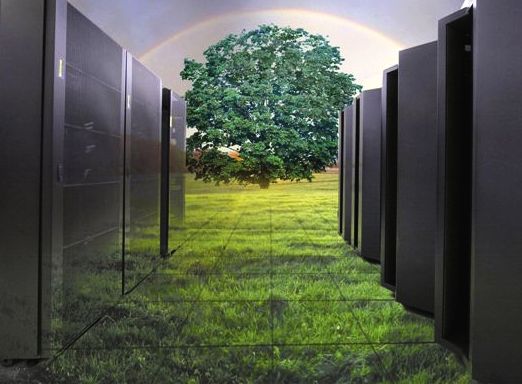Apple Responds To Greenpeace Criticism

Apple has claimed an upcoming Oregon data centre will run on ‘100 percent renewable energy’
Apple has decided not to remain silent after Greenpeace criticised it, along with Amazon and Microsoft, in a mid-April “How Clean Is Your Cloud?” report, which claimed all three heavily relied on “dirty utilities” like coal to power their cloud-running data centres.
Apple, normally tight-lipped in the face of media hype and public criticism, issued an uncharacteristically quick riposte to Greenpeace’s PR offensive, with a statement about the energy sources for the data centres – facilities often referred to as “server farms” – it is building in Maiden, North Carolina and Oregon.
Renewable energy sources
“Our data centre in North Carolina will draw about 20 megawatts at full capacity, and we are on track to supply more than 60 percent of that power on-site from renewable sources including a solar farm and fuel cell installation, which will each be the largest of their kind in the country,” Kristin Huguet, an Apple spokesperson told the US’ National Public Radio in a statement. “We believe this industry-leading project will make Maiden the greenest data centre ever built, and it will be joined next year by our new facility in Oregon running on 100 percent renewable energy.”
According to a 20 April report from Wired, Apple has started construction on a 10,000-square-foot facility in Oregon, but recently also worked out a long-term agreement for a 160-acre plot outside of the town of Prineville, Oregon, where it plans to build “a much larger facility, similar to what Facebook has already built”, Jason Carr, the town’s economic development manager, told Wired.
 In its report Greenpeace described the data centres as “the factories of the 21st century information age”, with some consuming the energy equivalent of 180,000 homes.
In its report Greenpeace described the data centres as “the factories of the 21st century information age”, with some consuming the energy equivalent of 180,000 homes.
“Three of the largest IT companies building their business around the cloud – Amazon, Apple and Microsoft – are all rapidly expanding without adequate regard to source of electricity, and rely heavily on dirty energy to power their clouds.”
On a company “Scorecard”, Greenpeace gave Apple a D for Energy Transparency, an F in Infrastructure Siting and D’s in both Energy Efficiency and Renewables & Advocacy.
“[Apple] has invested at least $1bn (£620m) in an ‘iData centre’ in North Carolina, one of the world’s largest data centres, and just announced another facility to be built in Prineville, Oregon. Unfortunately, both of these investments are powered by utilities that rely mostly on coal power,” Greenpeace wrote, explaining the grades.
‘Lack of transparency’
“Given the lack of transparency, siting policy or a clear commitment to power the iCloud with renewable energy, Apple is finding itself behind other companies such as Facebook and Google who are angling to control a bigger piece of the cloud,” it continued. “Instead of playing catch-up, Apple has the ingenuity, on-hand cash and innovative spirit to Think Different and make substantial improvements in the type of energy that powers its cloud.”
It’s possible that, as it has before, Greenpeace was deliberately provoking Apple. In an asterisk under the Scorecard, it admitted it didn’t actually have all the details on Apple.
“Both [Amazon Web Service] and Apple were provided facility power demand estimates to review, both responded they were not correct, but neither provided alternative estimates,” Greenpeace wrote. “Using conservative calculations, Greenpeace has used the best information available to derive power demand and has decided to publish and invite AWS and Apple to be transparent and provide more accurate data for their facility demands.”
In 2004, Greenpeace launched a campaign to not just reduce electronic waste but to get manufacturers to remove the worst toxic substances from their products. In 2006, it went after Apple directly, launching a “Green My Apple” site that mimicked Apple’s own but with a banner that read: “We love our Macs. We just wish they came in green.”
Apple decided to bite, wrote Greenpeace’s Tom Dowdall in a 6 October, 2011 blog post, after waking to the news of Steve Jobs’ death. While it’s safe to say Jobs wasn’t a Greenpeace fan, Dowdall wrote, in 2007 he made a promise to phase out the most hazardous substances from Apple products.
“In 2008 Apple led the industry with the first computers virtually free of toxic PVC and BFRs,” Dowdall explained. “He clearly understood the value to Apple of being the first. Today, all Apple products are free of these hazardous substances and where Apple lead, HP, Acer and others have followed. That alone made Steve Jobs ultimately a valuable ally in the fight for a toxics free future.”
Clearly, Greenpeace understands the value of needling Apple.
“We need many more leaders like Jobs at the top of global companies, who have the vision, drive and personality to deliver real solutions to the environmental challenges of today,” wrote Dowdall.
How well do you know the cloud? Take our quiz.